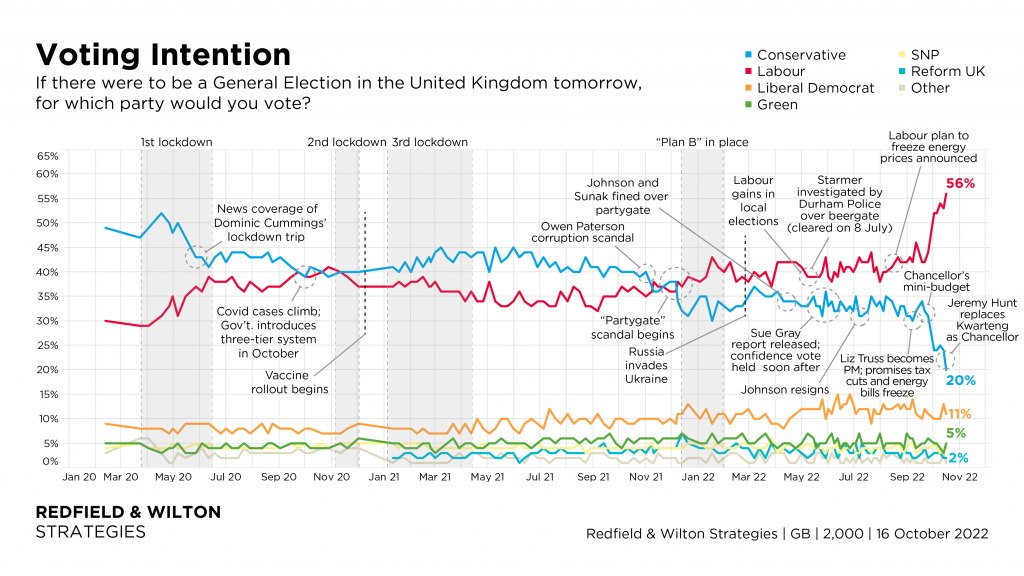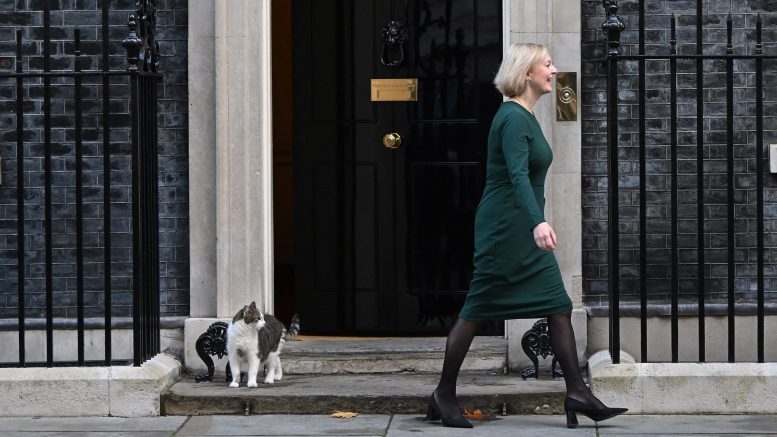Having resigned from her post early Thursday afternoon, after just 45 days in power, Liz Truss became the shortest-serving Prime Minister in British history. While the country has barely had time to digest the news, the speculations have already begun:
Who is going to follow Truss as the next Prime Minister, and can the Conservative Party avoid another failure?
Sir Graham Brady, the chairman of the 1922 Committee, announced in his briefing on Thursday evening that the process of choosing a successor has already started, and the deadline for applications is Monday, at 2:00 p.m.
Brady also announced that applicants need the support of at least one hundred Conservatives in the House of Commons to advance to the election stage. The chairman mentioned, “We fixed a high threshold, but a threshold that should be achievable by any serious candidate who has a prospect of going through.”
According to Brady, this high threshold could potentially allow three candidates to advance to the election stage after the deadline expires. The Conservative Party currently has 357 representatives in the House of Commons.
The deadline for the election process is Friday afternoon, meaning that the UK will have its new Prime Minister by the 28 October.
Bookmakers consider former Finance Minister Rishi Sunak the preferred candidate in the leadership race. He is followed by former Defense Minister Penny Mordaunt, and former Prime Minister Boris Johnson, Liz Truss’s immediate predecessor.
Defence Secretary Ben Wallace, who was also seen as a possible candidate, has ruled himself out of the Tory leadership race, and while not publicly backing anyone for leader, he has said he is currently “leaning towards” supporting Boris Johnson.
Is there a chance for an early general election?
The next general election is due to be around January 2025, but many politicians are calling for an immediate general election to be held. Leader of the Labour Party, Keir Starmer, is one of many pushing for a new election.
“The Conservative party has shown it no longer has a mandate to govern. The British public deserves a proper say on the country’s future… We must have a chance at a fresh start. We need a general election – now.”
Nicola Sturgeon, leader of the Scottish National Party, has also expressed her support of an early general election:
According to polls, the public is also in favour of an early general election with Labour leading significantly in the polls.

Even with the support of the public, an early general election seems unlikely. A new law, the Dissolution and Calling of Parliament Bill 2021-22, repealing the Fixed-term Parliaments Act of 2011 was approved in March 2022, restoring the PM’s authority to request the monarch to dissolve parliament, which would trigger a general election.
With the current procedure in place, an early general election seems unlikely to take place until late 2024 or even 2025 if the UK’s new prime minister doesn’t call for one.
Words: Andrea Rezman | Subbing: Cerah Handsaker


Be the first to comment on "Life after Truss: Can the Conservatives regain the nation’s trust?"